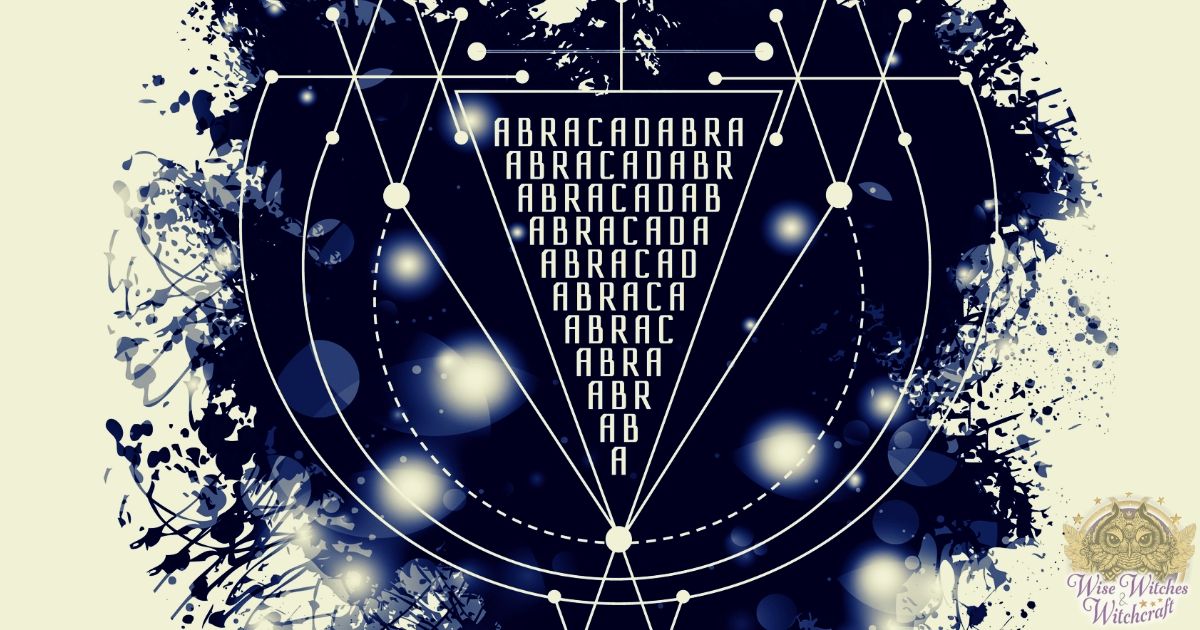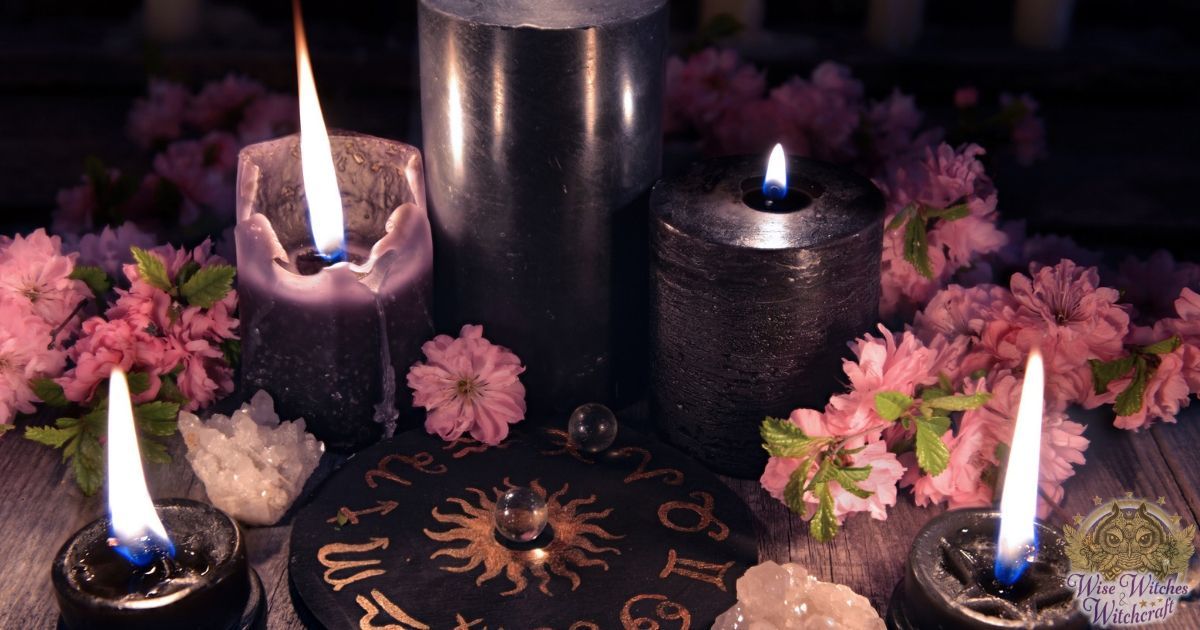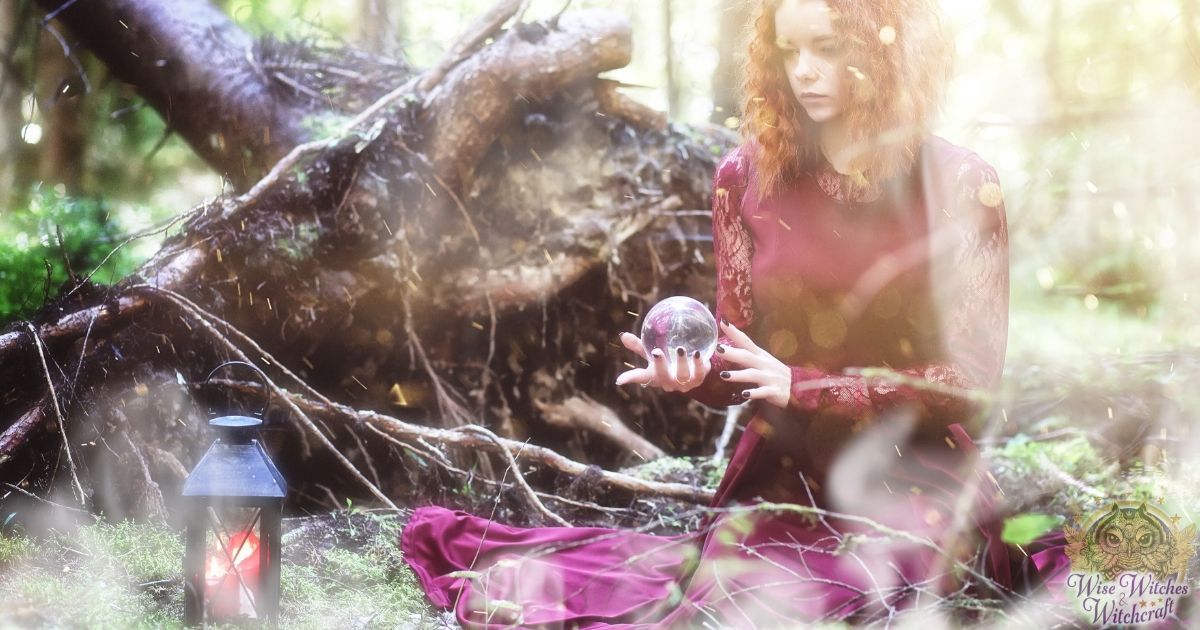Writing Powerful Magical Incantations That Work

“The origins of poetry are clearly rooted in obscurity, in secretiveness, in incantation, in spells that must at once invoke and protect, tell the secret and keep it.” – Mary Ruefle
There are many components that Witches put together for spells and rituals. One such component is an incantation. Basically, an incantation acts as a willful command or wish. The practitioner may sing or chant it, often repeating the words several times based on that number’s mystical values in Numerology. In some ways, the incantation sounds much like a prayer or a mantra. The key difference between a prayer and the incantation, however, is that we need not bend a deity’s ear for an incantation.
Ancient Roman writings ascribe six characteristics of a true incantation:
- The words were designed in the form of an imperative (using active voice).
- The entire phrase was chanted, having a musical quality.
- The spoken words were whispered softly.
- The entire piece required repetition to work.
- There were no Gods or Goddesses involved in the matter.
The six elements are not that far off from a modern Witches’ incantations. The key differences are modern incantations need not be quiet unless the practitioner wishes and repetitions may or may not occur.
Word Power for Magic

If you look at magical processes around the world, it’s hard to find any that do not include language. When we say language, this includes our inner thoughts (will) that guide power. There is a long-honored belief words can truly change the universe. The key is knowing the right words, at the right time, and exactly how to apply them. Magical speech is by its very nature a ritual of sorts and plays an integral role in occult workings.
Of course, not all speech has magic in it. When we say “hi” to a friend, it’s totally dissimilar from a spell’s incantation. Incantations often have metaphorical value, symbolizing our internal focus and convictions. The choice of an incantation’s form and terminology (unless constructed by a group) is very personal.
What’s interesting is that some customs advise secrecy after the utterance of an incantation. Why is that? The ancient mages may well have thought that there was a limited amount of magic in the world. By holding their silence, they “reserved” energy for their spell and also kept their trademark spells a secret from others.
Spells vs. Incantations
Incantations are words within a spell. The spell itself has many other elements that may include:
- Candles
- Incense
- Poppets
- Crystals
- Herbs
- Magical tools
- Other symbolic components
As the spell develops, the incantation acts as an adhesive for all those elements so they work cooperatively and have continuity.
Incantation Verbal Safeguards
Language is a complex creature. As you travel, the word used for “hello” changes, for example. In day-to-day life, we wouldn’t naturally say “hello” to someone in a language other than the one with which we are fluent. As in life, so in magic. We strongly advise against creating incantations in other languages unless you understand them and speak them correctly. Even if you come across a pre-made incantation with words you’ve never seen before, it’s a reason to pause. Can you be certain your intent will be clear?
There are other precautions for fashioning your incantations. These include:
- Don’t use words with which you are uncomfortable or that you have a hard time saying no matter how flowery and fancy they seem.
- Watch out for homonyms. A word that has two different meanings could really upset the magical apple cart.
- Make sure you are wholly clear on your purpose, and then find words that “fit” that purpose. When you send out magic, your incantation is like a roadmap. If the map isn’t correct, the energy gets lost (or worse, ends up where you least wanted it).
Bare Bones of Incantation Construction

So, what exactly makes for the best incantation? Ask ten people and get twenty answers. Nonetheless there seems to be commonalities among the most successful incantations:
- The words have a poetic feel, be it a meter or rhyme.
- The incantation is concise and to the point.
- The words are easily committed to memory.
- The intent is perfectly clear.
- The piece feels comfortable, flowing, and meaningful.
- The incantation ends by precisely stating the desired outcome.
Some people get stuck when they try to keep an incantation short but also detailed. Sometimes a little stream of consciousness writing sorts this out. Get everything in your head down on paper. Once it’s there, read over it and start reducing it down to simpler thoughts and key themes. Look for strong emotional responses as these support magic.
Using the Magical Incantation

Once you are happy with your incantation, you are not quite done yet. Address these considerations:
- Do you want to repeat the incantation, and if so what is the number of times that vibrates with your goal. For example, with a money spell, four repetitions makes sense as that is the number of security and prosperity.
- Are there any physical actions that the incantation implies? If you are saying something like, “lift this energy” you could lift your hands at that moment, palms upward. The more senses that get involved in your spell, the better the results seem to become. When you move your body, you are not only creating symbolism but also creating energy.
- Do you need any components other than those you normally use for this spell based on the incantation’s wording? Let’s take the example of love. If your incantation uses roses as a metaphor for love, you should use rose petals somehow in your spell.
If you have your answers, now is the time to give the writing of the magical incantation a try. If you keep a Book of Shadow or spiritual diary, make notes of your experience. How did you feel about the result? Do you want to use something like this incantation again in the future? Writing incantations is a wonderful way for really thinking about your magic, your goals and how best to manifest them. And like most things, you will get better with practice. Now, break out that pen!




